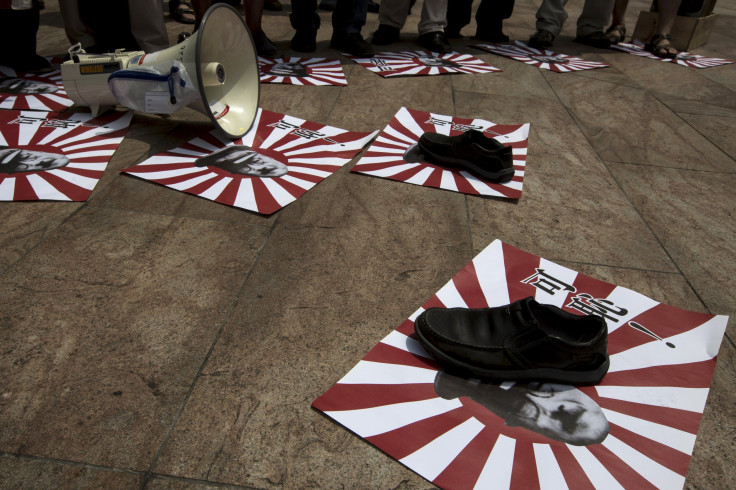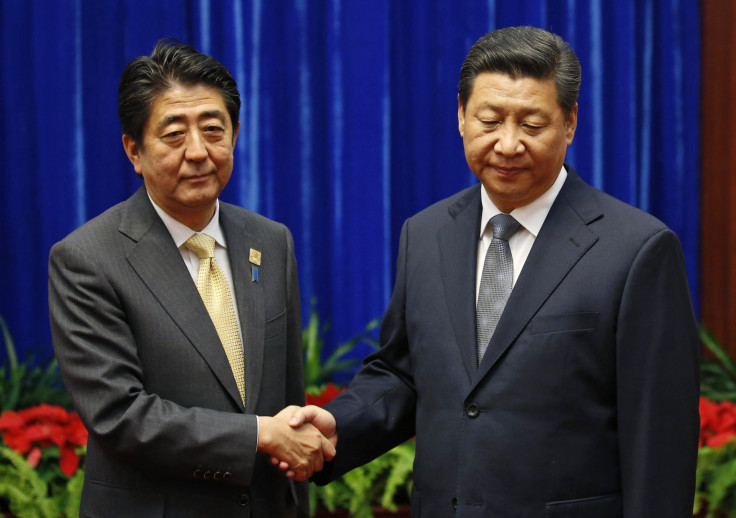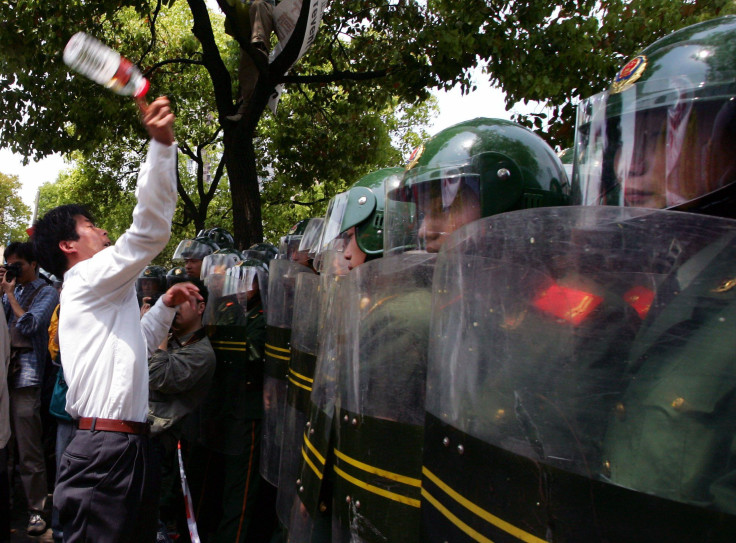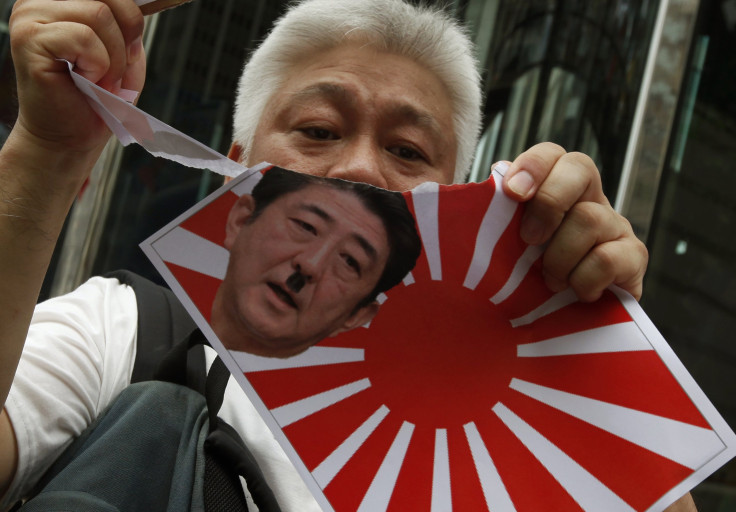China Cautions Japan Over Controversial Security Bills

SHANGHAI -- China has called on Japan to act prudently and respect the concerns of its neighbors, after controversial security bills were approved by a key legislative committee in Tokyo, making them almost certain to become law. The bills would allow Japan’s military, for the first time since 1945, to go into battle abroad to protect its allies, rather than simply defend its own territory.
The bills, which are being forced through parliament by supporters of Prime Minister Shinzo Abe, have alarmed Japan’s neighbors: many see their reinterpretation of the pacifist constitution imposed on Japan at the end of World War II as part of attempts to revive Japan’s militarism of the 1930s and 1940s, when the country invaded China, South Korea and several southeast Asian nations.
A statement from China’s Foreign Ministry urged Japan to “draw hard lessons from history, respect the major security concerns of its Asian neighbors, stick to the path of peaceful development, act prudently in the military and security fields, and do more things that are conducive to regional peace and stability,” the official Global Times newspaper reported Friday.

Chinese bitterness toward Japan -- which many Chinese feel has never fully apologized for its wartime occupation of China in which 35 million people died or were injured -- is high as a result of tension over disputed islands in the East China Sea, and visits to a shrine honoring convicted World War II war criminals by members of Abe’s camp. China’s military parade earlier this month to commemorate the end of Japan’s occupation in 1945 was a further reminder of underlying tensions.
Perhaps conscious of the potential for anti-Japanese protests to get out of hand, as happened in 2012 and 2005, official Chinese language media did not put the reports about the vote in Tokyo on their front pages on Friday -- and inside-page reports emphasized public opposition to the bill in Japan.
However, Zhang Lili of the China Foreign Affairs University, said the changes would “complicate maritime disputes in Northeast Asia,” since Japan might now “take military actions” to deal with such problems. He told the Global Times newspaper that Japan would also expand defense and security cooperation with other countries, including Australia, Vietnam and the Philippines, to “realize its purpose of containing China.”

Other Chinese experts told the paper that the changes would “accelerate the integration of military forces between the U.S. and Japan,” and warned that China must “watch over the rise of Japan’s right wingers and make proper preparations for their military moves.” A Global Times commentary added that the bills would “largely make Japan’s pacifist constitution void” and suggested China should “counter this by developing a more powerful military to withstand Japan’s provocation.”
Chinese commentators did suggest that, ultimately, it would be China’s relations with the United States that would determine the shape of future relations between Beijing and Tokyo -- because, in the words of one commentator, as long as the U.S. kept military bases in Japan, the country would “remain a puppet state of the US.”
Yet there is no question that a change in the role of Japan’s self-defense force will alarm many of the country’s neighbors. And some members of the public commenting on reports of the vote on Chinese Internet forums expressed anger:
“If the evil wolf has escaped its leash, it will certainly bite the nearest people,” said one commenter on Shanghai-based news website The Paper, adding “The American empire is plotting against us, because it doesn’t want see China become number one in the world in ten years’ time.”
Another commenter said: “We should be on the alert, and make preparations – the spirit of Japanese militarism has never vanished.” A third added -- in reference to the 1940s -- that “China today is not like it was back then… If the mad dog has slipped its leash, then the only solution is to beat the dog to death.”

However not everyone in China is so pessimistic about the changes.
“Japan has not fired a bullet for the past 70 years,” Shen Dingli, associate dean of the Institute of International Studies at Shanghai’s Fudan University told International Business Times.
He said if Japan provoked China then the latter would fight back resolutely, but he said he did not think that Japan would become “aggressive” after passing the security bills. “We should “welcome Japan to be a normal country again -- and welcome it to fight for world peace,” Shen said.
But in a reminder of continuing tensions, China on Friday unveiled another documentary film about Japanese atrocities in China in World War II. Chinese television showed a continuous diet of movies and documentaries about the Japanese occupation for much of this year, in the run-up to the parade in Beijing earlier in September.
© Copyright IBTimes 2025. All rights reserved.






















